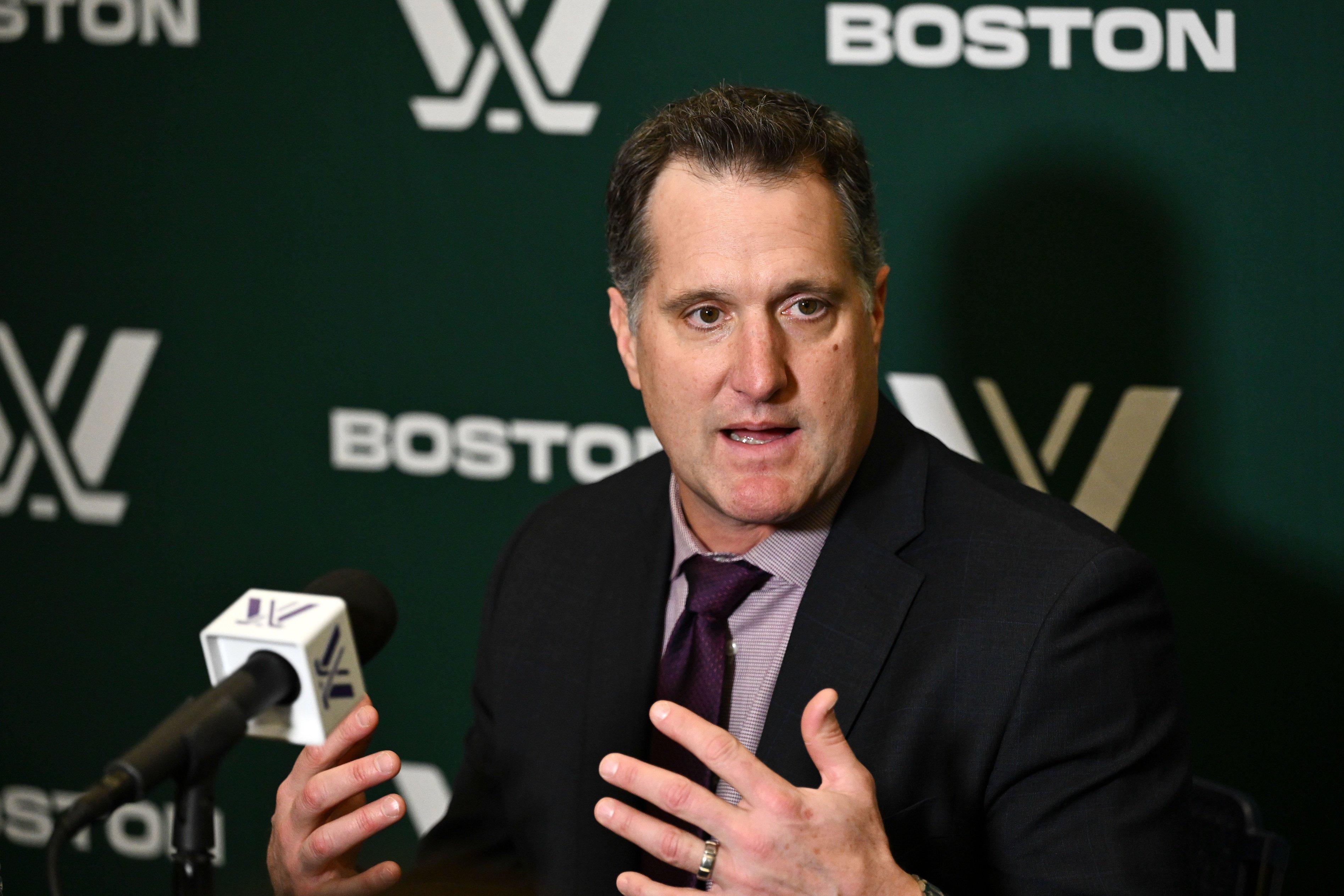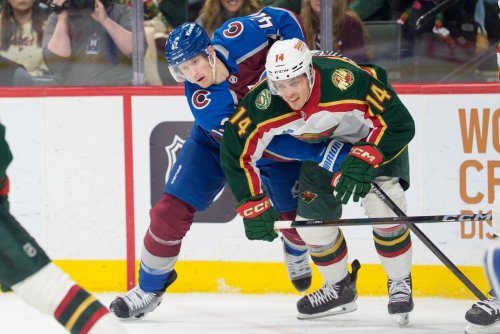
Minnesota Frost's 4-2 loss to the Boston Fleet on Sunday was one of those games that cannot be understood through a score sheet alone. Crucial moments and decisions shifted the energy partway through, completely changing the momentum. The game also started well before the puck dropped at 1:00 p.m.
On February 11, 2025, the PWHL returned from the international break. The Frost, tied for first place, hit the ice against the sixth-place Toronto Sceptres. Minnesota has won their previous 2 meetings but lost 3-2 in overtime.
Twenty-four hours later, the Frost were in second place, playing the sixth-place Ottawa Charge. Minnesota lost to the Charge 8-3. After a loss like that, the Frost are understandably hungry for a win and to prove that the game was little more than a misstep.
The Frost traveled to Boston to play the Fleet on Sunday. In their previous 4 matchups, Minnesota has beaten the Fleet every time. Their next matchup after that was against the Montreal Victoire, who was in first place and on a six-game win streak. Minnesota’s game in Boston looks like a chance for the Frost to turn things around, so the pressure is on.
Boston has a different mindset. They’ve lost every game against the Frost, and the next game is against the New York Sirens, who the Fleet has beaten before. It made sense for Boston to go all-in for the Sirens game and get the extra point of a regulation win rather than give everything against the Frost and potentially lose both games.
Aerin Frankel and Emma Söderberg had played 2 games against the Frost and lost. Frankel is Boston’s first-string goalie and had played 13 of its previous 15 games. As the first-string goalie, it’s important to rest her before the Sirens game. Additionally, Söderberg let in 5 goals in the previous Frost matchup and wanted a chance at redemption.
Boston entered the game knowing that Minnesota was the second-best team in the league and that they had a better chance against the Sirens. The Fleet came ready, but in a way, the pressure was on the Frost.
The puck dropped at 1:00 p.m., and Minnesota immediately increased the intensity. The Frost took just 70 seconds to create their first high-chance scoring opportunity. Kelly Pannek made a cross-ice stretch pass, which Brooke McQuigge received and nearly scored but hit the post.
Minnesota took risks for the entire first period, reacted quickly, and made stretch passes to beat Boston’s defense and get pucks in the net early.
With 9:11 left in the first period, Minnesota’s Sophie Jaques flipped the puck down the ice to Kendall Schofield Coyne, who corralled the bouncing puck lightning fast. Coyne then used her speed to beat Boston defenseman Sydney Bard and scored on Söderberg.
The Frost wanted security on the scoreboard and didn’t relent for a second after the first goal. With 7:11 left in the first period. Pannek spun around to avoid the Fleet defenseman and tried to pass it to McQuigge. The pass went past McQuigge’s stick, so she threw her foot out to stop it, and it redirected past Söderberg into the net.
At first glance, McQuigge got a lucky bounce. However, She was going to score at some point. She had been driving to the net, generating a lot of offense, and creating multiple scoring opportunities throughout the game.
Boston played well in the first period, but Minnesota was better.
The battle continued into the second period when Minnesota nearly scored 72 seconds in, but the officials called the goal back.
As you can see in the video above, the puck may have been over the line. Another half or even quarter of an inch, and the refs would have called it a goal. Minnesota’s second goal was not responsible for the momentum shift, but it was a key moment in the game.
To start the second period, Fleet head coach Courtney Kessel put Klara Peslarova in net for her PWHL debut. While the momentum shift didn’t come until later in the period, changing goalies changed the game entirely.
Boston was suddenly doing everything in its power to protect its goalie. The Fleet’s effort to win every foot race, come away with the puck from every battle, and block every shot was suffocating. Minnesota was still moving up the ice with speed, but the Fleet was suddenly capitalizing on every missed pass and moment of hesitation from the Frost.
The major momentum change became clear during Minnesota’s powerplay, which the fleet dominated. The Frost could not get a single shot off, and Boston created a 2-on-1 and nearly scored by picking off a pass just seconds after the power play.
Finally, Boston scored with 8:51 left in the first period.
Barely more than 15 minutes into her first PWHL game, Peslarova came out of the net to play the puck and help Boston on the breakout.
The way she plays the puck here and backhands it around the net shows confidence and makes her look like a much more veteran goalie. She saved shots on net and helped diminish the Frost’s opportunities.
Both teams were still getting chances, but the Fleet’s intensity is best illustrated in this moment:
Minnesota was in control and passed the puck behind the net, and Lexie Adzija saw the pass, sprinted full speed across the ice, and was on Kelly Pannek before she could get control of the puck.
The second period ended 2-1, and the third period continued like the second. With 18:24 left in the game, Boston scored with one of the filthiest goals I’ve seen in a long time.
Frost’s Dominique Petrie does a great job blocking a shot out front and immediately starts to move out of the zone with it. However, the Fleet’s Jill Saulnier catches up to her, takes the puck, and passes to Susanna Tapani, who backhand-roofed the puck into the net.
Did Petrie or Maddie Rooney make a mistake here? No. Petrie made a great block. One could argue that she got outskated, but Petrie went from skating backward to block the shot to immediately moving forward. Saulnier hustled to beat her but also already had forward momentum. A literal brick wall would have had difficulty saving Tapani’s goal. It was simply a stellar effort and play by Boston.
Tied up, Minnesota and Boston continued to battle it out. The Frost continued to get rushes and opportunities but were consistently outmuscled. Ultimately, Boston scored with 6:37 left, taking the lead.
The Frost were unable to recover from this goal and pulled the goalie with 54.8 left in the game. Unfortunately, Boston scored an empty-netter, and that was the game. Suppose the earlier goal hadn’t been called back. Even if Boston still got the other 3 goals, Minnesota wouldn’t have pulled their goalie, and the game could’ve gone differently.
It was a frustrating game because the Frost had great goals and made great opportunities but were just a little slow in the second period, and the Fleet took advantage of every opportunity.
Frost head coach Ken Klee illustrated this well in the post-game press conference. He said they “have to be better [and] play a full 60 minutes.”
The Frost only looked off their game for one period. Still, the PWHL is a league full of talent, and other teams will capitalize on every chance they get. However, Minnesota hasn't made the same mistake twice. Yesterday, they broke Montreal’s streak with a 4-0 win, showing that the past few games don’t reflect their talent and hard work.
Think you could write a story like this? Hockey Wilderness wants you to develop your voice, find an audience, and we'll pay you to do it. Just fill out this form.
-
 1
1







Recommended Comments
There are no comments to display.
Join the conversation
You can post now and register later. If you have an account, sign in now to post with your account.
Note: Your post will require moderator approval before it will be visible.